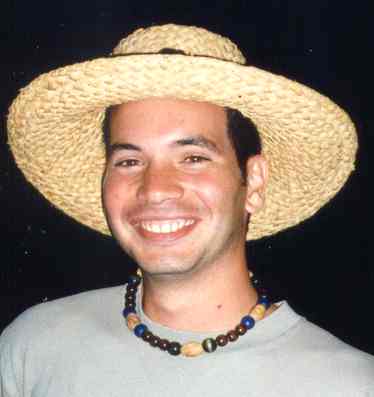Daniel Feigenbaum CLEIMAN
Research Assitant, Biosorption
|
Contact Points:
-
Phone:
-
Fax:
-
E-mail:
-
Lab: 7300 Wong, Environ-Biotech
-
Office: Rm. 7280 Wong Building
|
Degrees:
BEng Chemical Engineering, McGill
University (2001)
Research Project:
"Arsenic Biosorption
by Crab Shells"
Abstract:
Highly
poisonous Arsenic is widely distributed in nature and occurs in the form of
inorganic or organic compounds. The most toxic form of arsenic is its trivalent
cation As+3. Arsenic contamination has been reported from many parts
of the world including the USA, UK, Canada and Australia, however, in terms of
severity of the problem, Bangladesh tops the list, followed by India, and
China. Millions suffer from different degree of acute arsenic poisoning and
well-known health problems exist on a large scale in those parts of the world.
This situation has been termed "the largest mass poisoning in the history of
mankind".
In order to provide cost effective and affordable purification of water sources
for these affected populations, application of a simple flow-through biosorption
process is proposed. Low-cost and natural biosorbent capable of effectively
removing dissolved As+3 from water has been developed in the work of
Prof. B. Volesky. The biosorption process is regenerable and uses a common
seaweed (Sargassum) widely available at seashores in the critically
As-endangered areas of the world. Simple production and mass application of the
seaweed-based biosorbent is expected to also generate a spinoff for local
seashore economy.
Desorption of the deposited/sorbed ions
from the biosorbent will be examined for biosorbent regeneration purposes and in
order to obtain them in a concentrated solution enabling their recovery.
Biosorbent regeneration contributes to a further increase of the outstanding
process cost effectiveness. Flow-through pilot column tests will be carried out
supplemented by equilibrium metal uptake studies to optimize the metal removal.
Results will also provide a basis for computer modeling of the biosorption
system which in turn will significantly reduce the scope of the necessary field
tests.
The project
objectives are aimed at developing the biosorption technology application
aspects and the basis for improved cost estimates.
-
Research:
-
Decontamination of waste water effluents: biosorption
-
Environmental Biotechnology: industrial pollution control and bioremediation
-
Equilibrium biosorption studies for selection of best removal conditions and
biosorbent material
Interests & Hobbies:
-
Hobbies: surfing, snowboarding, mountaineering
|
